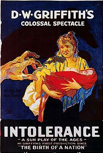A Utopian solution to cross-border hate speech?
 James Banks (Sheffield Hallam University) has just published European Regulation of Cross-Border Hate Speech in Cyberspace: The Limits of Legislation (2011) 19 European Journal of Crime, Criminal Law and Criminal Justice 1-13 (SSRN | Ingenta). This is the abstract:
James Banks (Sheffield Hallam University) has just published European Regulation of Cross-Border Hate Speech in Cyberspace: The Limits of Legislation (2011) 19 European Journal of Crime, Criminal Law and Criminal Justice 1-13 (SSRN | Ingenta). This is the abstract:
This article examines the complexities of regulating hate speech on the Internet through legal frameworks. It demonstrates the limitations of unilateral national content legislation and the difficulties inherent in multilateral efforts to regulate the Internet. The article highlights how the US commitment to free speech has undermined European efforts to construct a truly international regulatory system. It is argued that a broad coalition of citizens, industry and government, employing technological, educational and legal frameworks, may offer the most effective approach through which to limit the effects of hate speech originating from outside of European borders.
In particular, he considers that the Additional Protocol on Xenophobia and Racism (ETS 189) to the Council of Europe’s Convention on Cybercrime (ETS 185), whilst a laudatory endeavour, is undermined by US adherence to the First Amendment, so that “the law alone may not be the most appropriate mechanism through which to counteract hate speech online”. He therefore advocates recourse to a combination of technological regulation (eg, ISP self-regulation; voluntary filtering) and the education of web users to minimise the transmission and reception of online hate speech.…
 In DW Griffith’s silent-era powerful – if flawed – classic movie, Intolerance (1916) (
In DW Griffith’s silent-era powerful – if flawed – classic movie, Intolerance (1916) (





 The 2008 Holocaust Memorial Lecture will be delivered by Professor
The 2008 Holocaust Memorial Lecture will be delivered by Professor